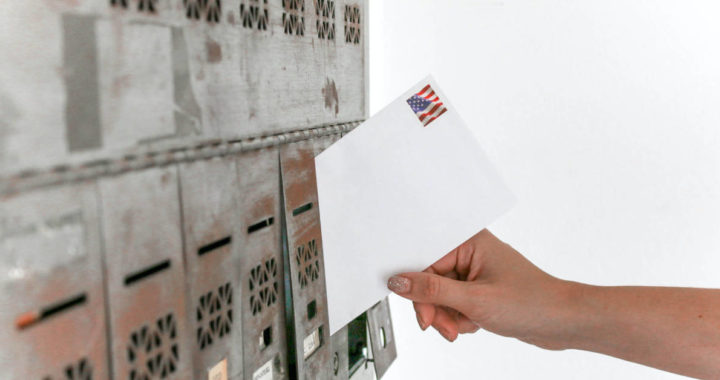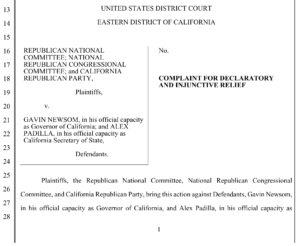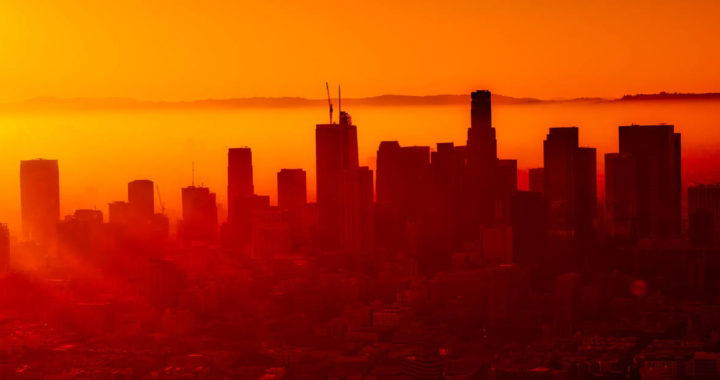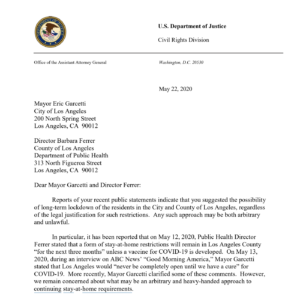The Republican National Committee and two other GOP groups have filed a federal lawsuit in the Eastern District of California challenging Governor Gavin Newsom’s executive order declaring California a vote-by-mail state.
The executive order, signed by Newsom earlier this month, was promoted as a way to curb the spread of viral infections during the state’s emergency crisis over the novel coronavirus COVID-19 while at the same time ensuring registered California voters could still cast a ballot in the upcoming presidential election.
Since then, Republican groups have voiced opposition to the plan, saying it had the potential to increase voter fraud through a system that is already riddled with problems. Now, Republican groups are asking a federal court to declare Newsom’s executive order unlawful.
In a filing made with the federal court on Saturday, the Republican National Committee — joined by the National Republican Congressional Committee and the California Republican Party — said Newsom’s order would “invite fraud, coercion, theft and otherwise illegitimate voting.”
“By ordering that vote-by-mail ballots be automatically sent to every registered voter—including inactive voters, voters with invalid registrations, voters who have moved, voters who have died, and voters who don’t want a ballot—he has created a recipe for disaster,” the groups write.
The groups cited several studies in the lawsuit that purported to demonstrate problems and inaccuracies with voter registration records kept by several states. California was not explicitly mentioned in any of the citations pulled from those groups’ studies.
“Much of the push toward all-mail voting has been driven by litigation initiated by the Democratic Party,” the groups wrote in the court filing. “The Democratic National Committee, state Democratic parties, and several affiliated groups have filed lawsuits across the country to force a hurried transition to no-excuse mail-in voting, eliminate voter-identification requirements, and remove other existing safeguards.”
The groups accused Democrat-aligned groups with pushing for vote-by-mail initiatives long before the global spread of the COVID-19 virus because “they believe that the resulting free-for-all will help their electoral prospects.” Since the pandemic started, those groups have pushed harder for vote-by-mail initiatives under the guise of safeguarding public health, the groups contend.
“But COVID-19 does not warrant throwing out longstanding safeguards that protect the integrity of elections,” the lawsuit says. ” In fact, it makes those safeguards more important.”
Alex Padilla, California’s secretary of state, didn’t disagree that the ongoing health crisis required a new approach to voting in California, but said in a Twitter statement on Saturday that the decision to shift to vote-by-mail in the state was “not a partisan issue.”
“It’s a moral imperative to protect voting rights and public safety,” Padilla wrote. “Vote-by-mail has been used safely and effectively in [several] states for years.”
Padilla called this weekend’s lawsuit “another part of Trump’s political smear campaign against voting by mail.” Earlier this month, he said state officials would “do our best” to preserve in-person voting as an alternative to vote-by-mail.
The case is RNC v. Newsom, 2020-at-00509.




